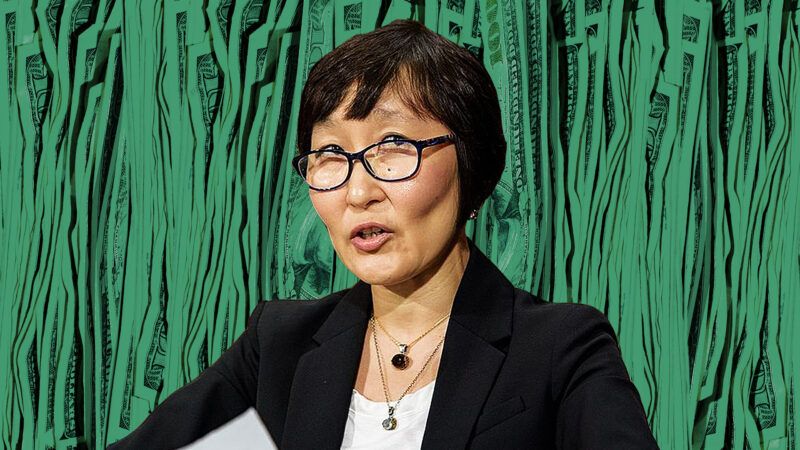Banks and Trade Groups Reject Saule Omarova, Biden's New Currency Comptroller Pick
Omarova's starry-eyed view of the Soviet Union and interest in giving far more power to the Federal Reserve should not inspire confidence.

Some people who survived the Soviet Union took its failures as lessons learned the hard way, not worth replicating. But not Saule Omarova, President Joe Biden's pick to serve as currency comptroller.
Born in the Kazakh Soviet Socialist Republic, Omarova is someone you might expect to be wary of the ways state power can distort markets at consumers' peril. Instead, the Cornell law professor tweets things like "Say what you will about old USSR, there was no gender pay gap there. Market doesn't always 'know best.'" She defended that claim by noting that salaries were set by the state and that maternity benefits were always generous.
How nice that communism can degrade both genders equally! Preventing people from being compensated for quality work across 11 timezones does not seem like a recipe for a productive, developed economy, and indeed it wasn't. But that gaffe wasn't an outlier. Omarova really does want to greatly expand state power, even if not to fully Soviet levels.
Omarova's most out-there academic ideas include directing the Federal Reserve to handle consumer deposits, taking that power away from banks. "Having Americans park their money at the Fed would allow the central bank to more directly and efficiently pull the levers of monetary policy by enabling it to credit individual citizens' accounts when there's a need to stimulate the economy," notes Politico.
Rob Nichols, president of the American Bankers Association, has said such policies would "effectively nationalize America's community banks," according to The New York Times. Omarova "wants to eliminate the banks she's being appointed to regulate," agrees the Wall Street Journal editorial board. Groups representing both big and small banks, including the American Bankers Association, the Consumer Bankers Association, and the Independent Community Bankers of America, have reached out to more moderate Democrats to lodge their opposition to the pick—a ballsy move, given that she may end up passing down the rules that these associations' members must later comply with.
"Recall that big banks always fight against regulation by claiming they lend to Main Street," she tweeted in July, along with a quote from an accompanying article: "JPMorgan and Citi are now lending more to a small number of ultra-high net worth clients than to their millions of credit card customers." (Note that JPMorgan and Citi Bank do, in fact, still lend to Main Street.) She has also branded herself as a cryptocurrency foe, like many of this administration's other recent picks, saying that digital currencies are "untethered" from the real economy. Amusingly, President Joe Biden likely sees her nomination as a safer pick designed to appease moderates, given that she worked for George W. Bush's administration.
Currency comptrollers, of course, do not have the power to do all the things Omarova has mused about in her academic writings, and dumb tweets here and there are not necessarily disqualifying. But the nominee's general hostility toward markets, coupled with faith that the Federal Reserve ought to take on more prominence, should give any libertarian pause.


Show Comments (52)